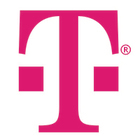AFAICT my T-Mobile Internet router connects to a CGNAT DMZ, and every time I connect to a network service I do so from what appears to that service to be a different IP4 address. There seem to be exceptions, however, for some known protocols - I’ve had an SSH session up for several consecutive days. So one CAN obtain a static IP address for things like VPNs and SSH, but the protocol has to be well-known. Therefore, questions:
- Is there an IPV4 packet flag that says “this session needs a static IP address” to routers along the way? Routers are already reading the port assignments in order to determine “oh, that’s SSH, better make this static.” Is there a packet flag one can set?
- If I turned off IPV4 and just used IPV6 would the CGNAT DMZ provide a static address, since I wouldn’t need to be sharing IPV4 addresses any more?




